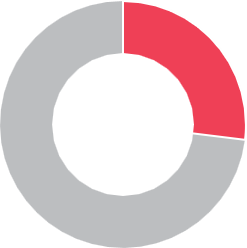Members of the Board, Audit & Supervisory Board Members, and Executive Officers
As of June 20, 2025
Skills Matrix
ITOCHU’s corporate officers, regardless of whether they are inside or outside, bring their knowledge, experience, and high level of insight in their respective fields to management.
 Masahiro Okafuji |
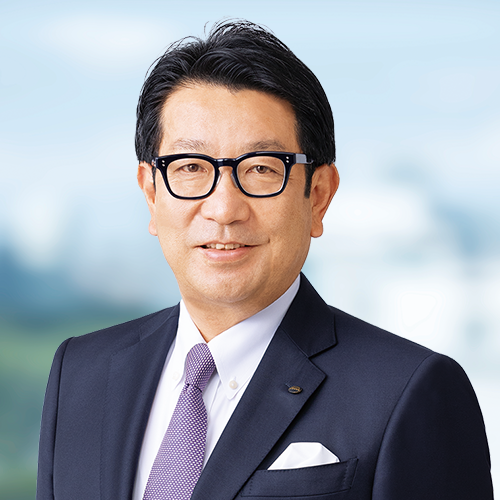 Keita Ishii |
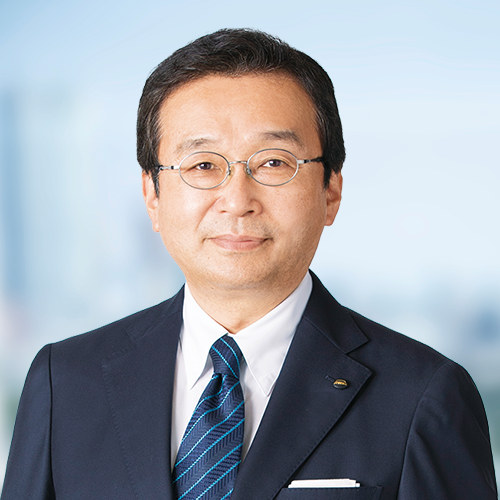 Fumihiko Kobayashi |
 Tsuyoshi Hachimura |
 Hiroyuki Tsubai |
 Hiroyuki Naka |
 Masatoshi Kawana |
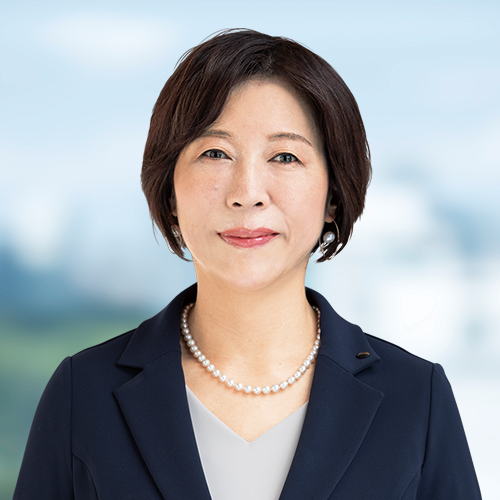 Makiko Nakamori |
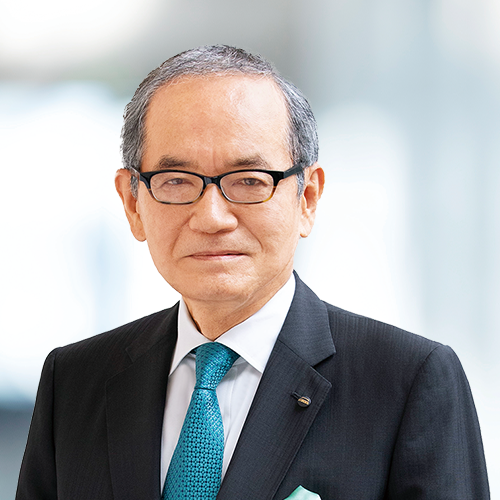 Kunio Ishizuka |
 Akiko Ito |
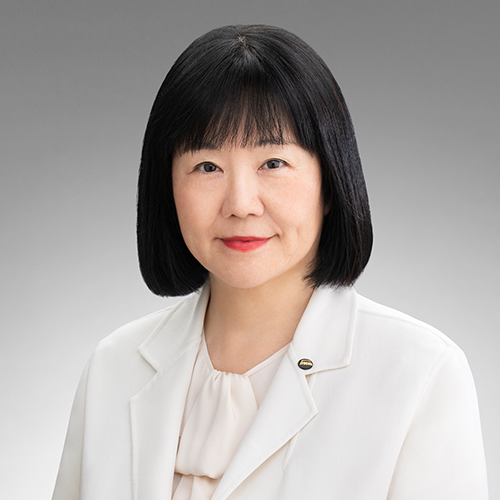 Yoshiko Matoba |
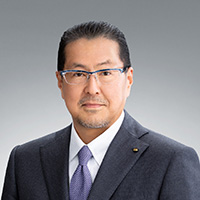 Makoto Kyoda |
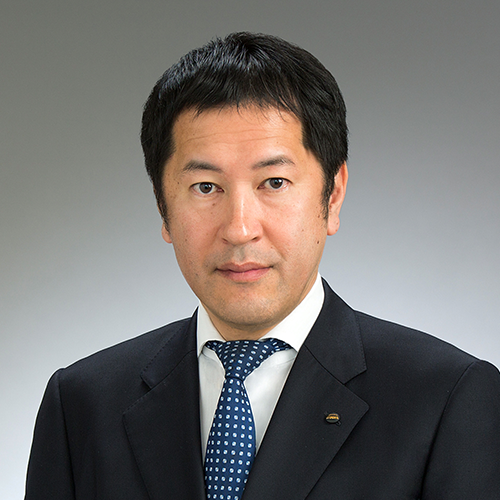 Kentaro Uryu |
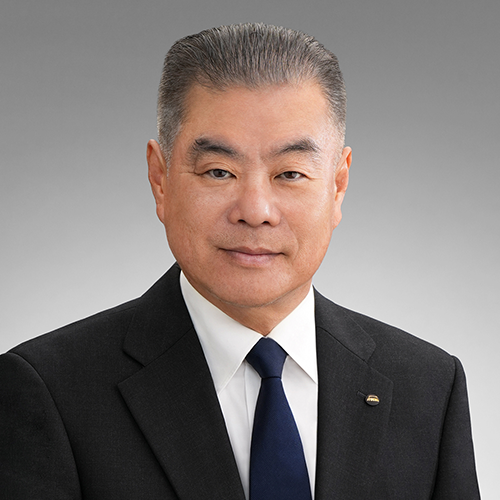 Tsutomu Fujita |
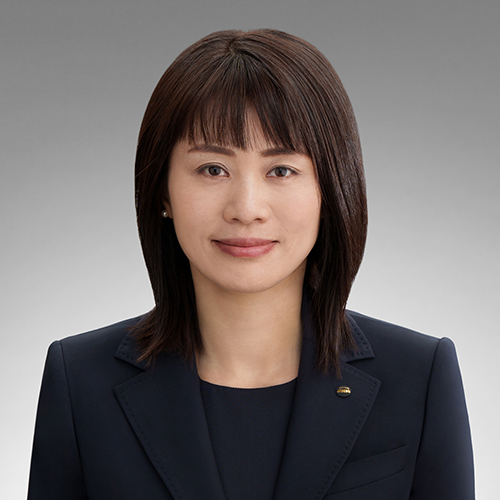 Kumi Kobayashi |
 Masahiro Okafuji |
 Keita Ishii |
 Fumihiko Kobayashi |
 Tsuyoshi Hachimura |
 Hiroyuki Tsubai |
 Hiroyuki Naka |
 Masatoshi Kawana |
 Makiko Nakamori |
 Kunio Ishizuka |
 Akiko Ito |
 Yoshiko Matoba |
 Makoto Kyoda |
 Kentaro Uryu |
 Tsutomu Fujita |
 Kumi Kobayashi |
Scroll
| Name | Role | Gender | Principal Specialized Area of Experience / Areas in Which Officers are Expected to Make a Particular Contribution | Governance, Nomination and Remuneration Committee |
Women’s Advance-ment Committee |
Main Role, Career History, Qualifications, etc. |
||||||||
| All Aspects of Management |
Global | Marketing /Sales |
Self-Trans formation /DX |
SDGs/ESG | Health & Medical Care |
Finance, Accounting & Risk Management |
Human Resources Strategy |
Internal Control & Legal Affairs /Compliance |
||||||
| Masahiro Okafuji (December, 1949) |
Chairman & |
|
◎ |
○ |
◎ |
○ |
○ |
○ |
○ |
○ |
○ |
□ |
President, Textile Company; |
|
| Keita Ishii (October, 1960) |
President & |
|
◎ |
○ |
◎ |
○ |
○ |
○ |
○ |
○ |
○ |
□ |
Chief Officer for Indo-China; |
|
| Fumihiko Kobayashi (June, 1957) |
Representative |
|
○ |
○ |
○ |
◎ |
○ |
○ |
◎ |
○ |
□ |
□ |
General Manager of Human Resources |
|
| Tsuyoshi Hachimura (July, 1957) |
Representative |
|
○ |
◎ |
○ |
○ |
○ |
◎ |
○ |
○ |
General Manager of Finance Division; |
|||
| Hiroyuki Tsubai (March, 1960) |
Representative |
|
○ |
◎ |
◎ |
○ |
○ |
○ |
○ |
○ |
CEO for Africa Bloc; CEO for Europe Bloc; |
|||
| Hiroyuki Naka (January, 1964) |
Representative |
|
○ |
○ |
○ |
◎ |
○ |
◎ |
○ |
○ |
General Manager of Corporate Planning |
|||
| Masatoshi Kawana (November, 1953) |
Outside |
|
● |
● |
● |
■ |
Vice-president of Tokyo Women’s |
|||||||
| Makiko Nakamori (August, 1963) |
Outside |
|
● |
● |
● |
□ |
■ |
Certified Public Accountant in Japan |
||||||
| Kunio Ishizuka (September, 1949) |
Outside |
|
● |
● |
● |
□ |
President and CEO/Chairman, |
|||||||
| Akiko Ito (February, 1962) |
Outside |
|
● |
● |
● |
□ |
□ |
Commissioner, |
||||||
| Yoshiko Matoba (November, 1963) |
Full-time Audit |
|
● |
● |
● |
□ |
General Manager of |
|||||||
| Makoto Kyoda (February, 1964) |
Full-time Audit |
|
● |
● |
● |
Chief Financial Officer, |
||||||||
| Kentaro Uryu (January, 1965) |
Outside Audit |
|
● |
● |
● |
* |
Managing Partner, URYU & ITOGA; |
|||||||
| Tsutomu Fujita (March, 1960) |
Outside Audit |
|
● |
● |
● |
□ |
Vice Chairman and |
|||||||
| Kumi Kobayashi (November, 1979) |
Outside Audit |
|
● |
● |
● |
□ |
Certified Public Accountant in Japan; |
|||||||
- ■Chair □Member *Observer
- Knowledge and experience held by internal Directors are indicated with 〇, and of these, the areas in which they are expected to make a particular contribution are indicated with ◎. Areas in which full-time Audit & Supervisory Board Members, Outside Directors and outside Audit & Supervisory Board Members are expected to contribute in particular are indicated with ● as the above list shows.
- Women’s Advancement Committee is comprised of the members mentioned above and General Manager of the Human Resources & General Affairs Division.
| Reasons for Selections of Areas of Knowledge and Experience / Areas in Which Officers Are Expected to Make a Particular Contribution | |
|---|---|
| Area | Reasons for Selection |
| All Aspects of Management | ITOCHU Corporation is a general trading company that operates in diverse business sectors. The oversight of business operations requires knowledge of this area in order to participate in discussions about business plans and strategies that may enhance corporate value based on the spirit of “Sampo-yoshi.” |
| Global | Knowledge of this area based on understanding different cultures and geopolitics is required because ITOCHU Corporation operates on a global scale as a general trading company. |
| Marketing / Sales | Knowledge of these areas is required because promotion of “Earn” measures is a key element of ITOCHU Corporation’s operations, which depend on leveraging sales capabilities as a “Merchant,” from a market-oriented perspective. |
| Self-Transformation / DX | ITOCHU Corporation realizes sustained growth by drawing on comprehensive strengths as a general trading company accompanied by self-transformation in a flexible manner that reflects changes in the external environment. ITOCHU Corporation does not make DX itself a target. Instead, by self-transformation, ITOCHU Corporation steadily builds up individual projects that are expected to swiftly contribute to profit namely those that optimize supply chains, etc. while leveraging existing business foundations. Knowledge of these areas is required for taking these actions. |
| SDGs / ESG | ITOCHU Corporation aims for sustained growth with a commitment to capitalism with greater emphasis on serving all stakeholders, which is “Sampo-yoshi capitalism.” ITOCHU Corporation sets to solve the seven identified material issues through business operations, including addressing climate change, to contribute to accomplishing the Sustainable Development Goals (SDGs). Consequently, knowledge of these areas is required. |
| Health & Medical Care | People is the most valued management resource of ITOCHU Corporation. Developing capability and enhancing the health is essential for maintaining a powerful workforce that may fulfill our Guideline of Conduct: “I am One with Infinite Missions.” Consequently, knowledge of these areas is required. |
| Finance, Accounting & Risk Management | Sustained growth requires strong financial foundation, accurate financial reports, and the analysis of risks when examining M&A and other projects. A quantitative framework of administrative divisions which support business divisions is also essential. Consequently, knowledge of these areas is required for constantly implementing the “Earn, Cut, Prevent” principles. |
| Human Resource Strategy | ITOCHU Corporation clearly identifies human resources as a key component of management strategy. Knowledge of this area is required in order to effectively implement various initiatives, such as work-style reforms to enhance corporate value. |
| Internal Control & Legal Affairs / Compliance | ITOCHU Corporation maintains an appropriate structure for the monitoring and audit of management in order to ensure appropriate and efficient execution of operation. Knowledge of these areas is required in order to make constant improvements to this structure and implement “prevent” measures. |
Structure of the Board of Directors
Scroll
| Year | Board of Directors | Audit & Supervisory Board Members | Ratio of Female Officers on the Board of Directors |
Ratio of Outside Officers on the Board of Directors |
||
| Inside Directors | Outside Directors | Inside Audit & Supervisory Board Members |
Outside Audit & Supervisory Board Members |
|||
| FYE 2026 |
6 
|
4 
|
2 
|
3 
|
27% |
47% |
| FYE 2025 |
7名 |
4名 |
2名 |
3名 |
25% |
44% |
| FYE 2024 |
6名 |
4名 |
2名 |
3名 |
27% |
47% |
COO: Chief Operating Officer; Chief Strategy Officer Division Company President: President, Machinery Company; Deputy Chief Operating Officer
![]() : Male
: Male ![]() : Female
: Female

